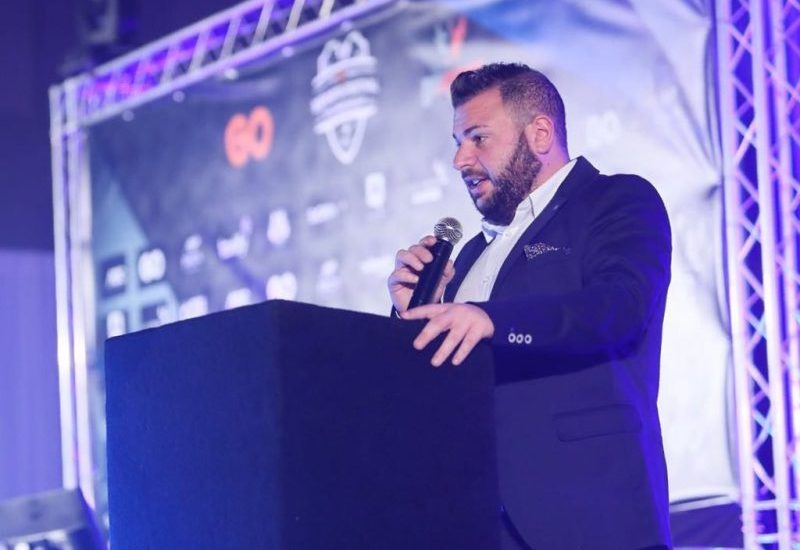Concerned sources within the entertainment industry flagged a ticketing service system being used by the Malta Tourism Authority that charges at least 8% in ticketing fees – 3 percentage points higher than the average 5% market rate, with the authority pushing sponsorship beneficiaries to use the system as part of the conditions accompanying the agreement.
Recent documented evidence seen by this portal shows that the ticketing system being used for three upcoming shows sponsored by the Malta Tourism Authority (MTA) is linked with 356 Entertainment Group, whose shareholders are close associates of MTA Sponsorship Committee head Lionel Gerada.
The ticketing system currently being used on Visit Malta’s website, the MTA’s official portal, is accessible via maltashows.com, a website bearing very little visible information barring links that automatically redirect to Visit Malta. The link between 356 Group and maltashows.com was established through a shared IP address that hosts both maltashows.com as well as 356Group’s as of yet unpublished website, along with numerous other domains related to the group’s projects such as creamfieldsmalta.com.

IP address search linking 356 Group, Malta Shows and Creamfields on the same address. Source: dnslytics.com
The sources that spoke to The Shift detailed their frustrations over the system. While it is not outright imposed on every sponsorship beneficiary, a copy of a sponsorship agreement seen by this portal states that beneficiaries “shall use the MTA’s ticketing platform”.
“In the event of alternative arrangements, the Company (beneficiary) shall give real-time access to MTA for auditing, marketing and logistical purposes,” the rest of the clause reads.
Besides frustrations related to the creation of an uneven playing field for competitors seeking to provide similar ticketing services, stakeholders also complained of the access to private customer data which such a sponsorship would afford the MTA.
356 Entertainment’s events, run by Nicholas Spiteri, Gerald Debono, Trevor Camilleri and Edward Zammit Tabona, landed Gerada in hot water when his well-known ties with the organisers were being scrutinised by the Public Accounts Committee last year. Gerada remains a director at the MTA.
Gerada had engaged in a sponsorship-granting spree with a budget that had tripled to €6 million in his first year as the head of the Sponsorship Committee, a role that was given to him via position of trust from disgraced former tourism minister Konrad Mizzi.

Lionel Gerada.
From that €6 million, the group hoovered up €2 million in sponsorship money in the summer of 2018 alone. Gerada was a canvasser for Mizzi, and was appointed to his position in spite of a criminal history involving embezzlement and fraud.
The stakeholders were also concerned over sharing a relatively small market with major, government-backed events that heavily lean towards the group of promoters close to Gerada. Gerada’s influence was so evident that the Public Accounts Committee had outlined how companies with direct access to Gerada had a ‘fast-track’ option that was a part of the MTA’s internal processes for sponsorship applications.
The sheer scale of events such as the BBC Orchestra, one source pointed out, could easily increase an entertainment company’s annual revenue by at least 10% in a normal year in which events are allowed to occur without any pandemic-related restrictions.
When contacted for a comment, head of The Malta Entertainment Industry Association (MEIA) Howard Keith stated that talks related to the MTA’s ticketing system are still ongoing and that the association “is still waiting for more information on the system and prefer not to comment further at this point”.
Questions about the reason why the MTA uses a more expensive system that charges 8% instead of a market rate of 5% in ticketing fees as well as questions about the lack of public calls for bidders interested in providing the service were sent by The Shift to a spokesperson for the tourism ministry. They have so far remained unanswered.
Keith also explained that when MEIA reached out to the MTA for explanations, the authority pointed towards a report that had been compiled by the National Audit Office after an individual complaint about the exclusive advantage provided to the current ticket service providers for Visit Malta.
According to MEIA, the National Audit Office’s report based on this complaint had concluded that there was nothing untoward about the ticketing system’s above average rate so no further investigation was ever carried out.
When asked about the general feeling of stakeholders being made to feel like they’re in competition with the government, Keith stated that “this is the most common rant we get from our members, to be honest, and MEIA has raised these concerns several times”.
“It’s a double-edged sword; on one side, some work is given to some operators, performers on the other side, sometimes it also competes with them. That the government is there to support and fund and help is its duty, that’s the way it should be,” Keith said.
“But, the government becoming producers, organisers etc…is dangerous. That is something we never recommend, it’s not normal and will always get backlash from stakeholders in the private sector,” he added, further arguing that while government was entitled to its own activities, a clear cut-off point should be established.















Par for the course in today’s Malta. They have had enough practice and the experience gained is widely applied.